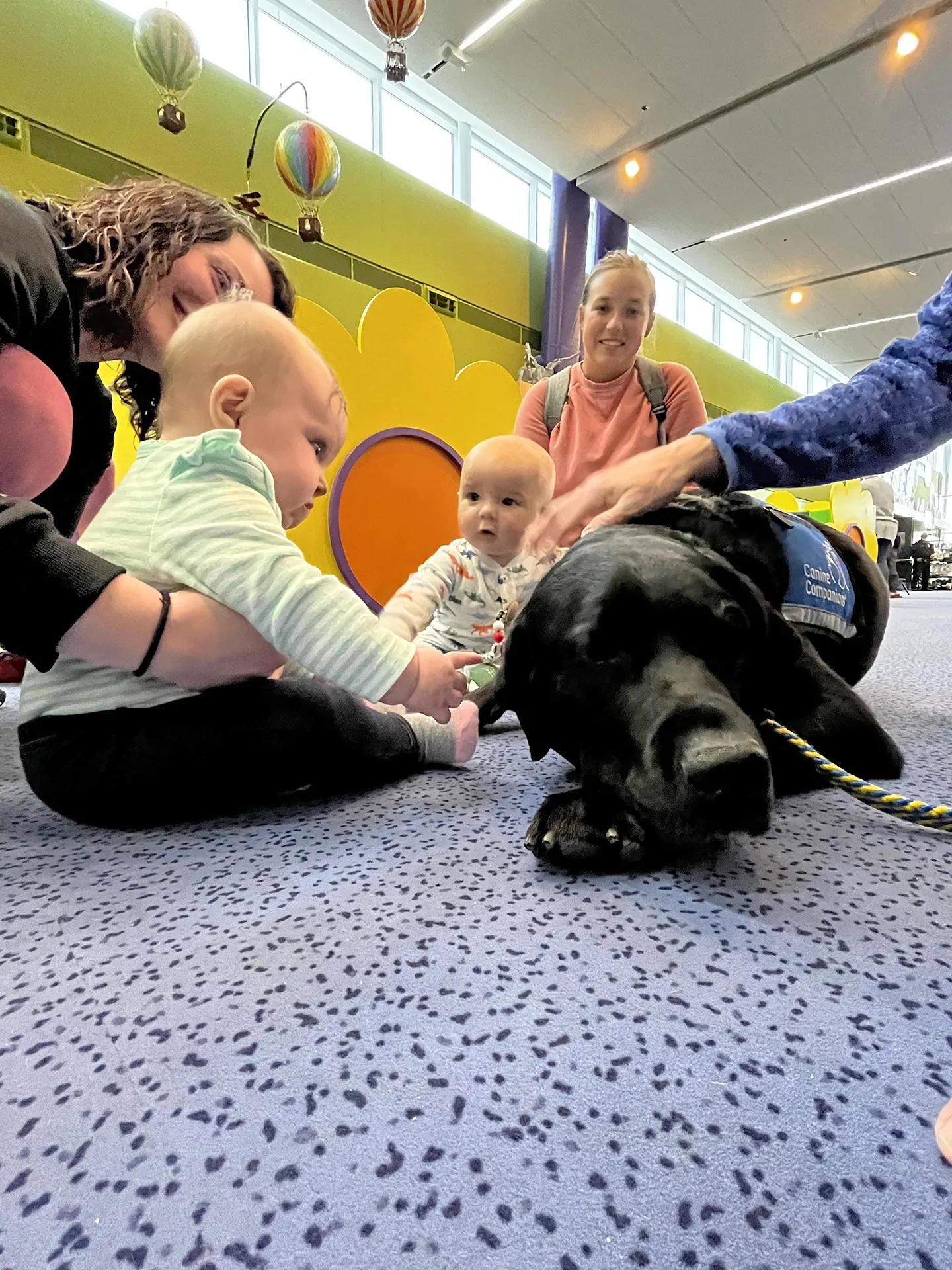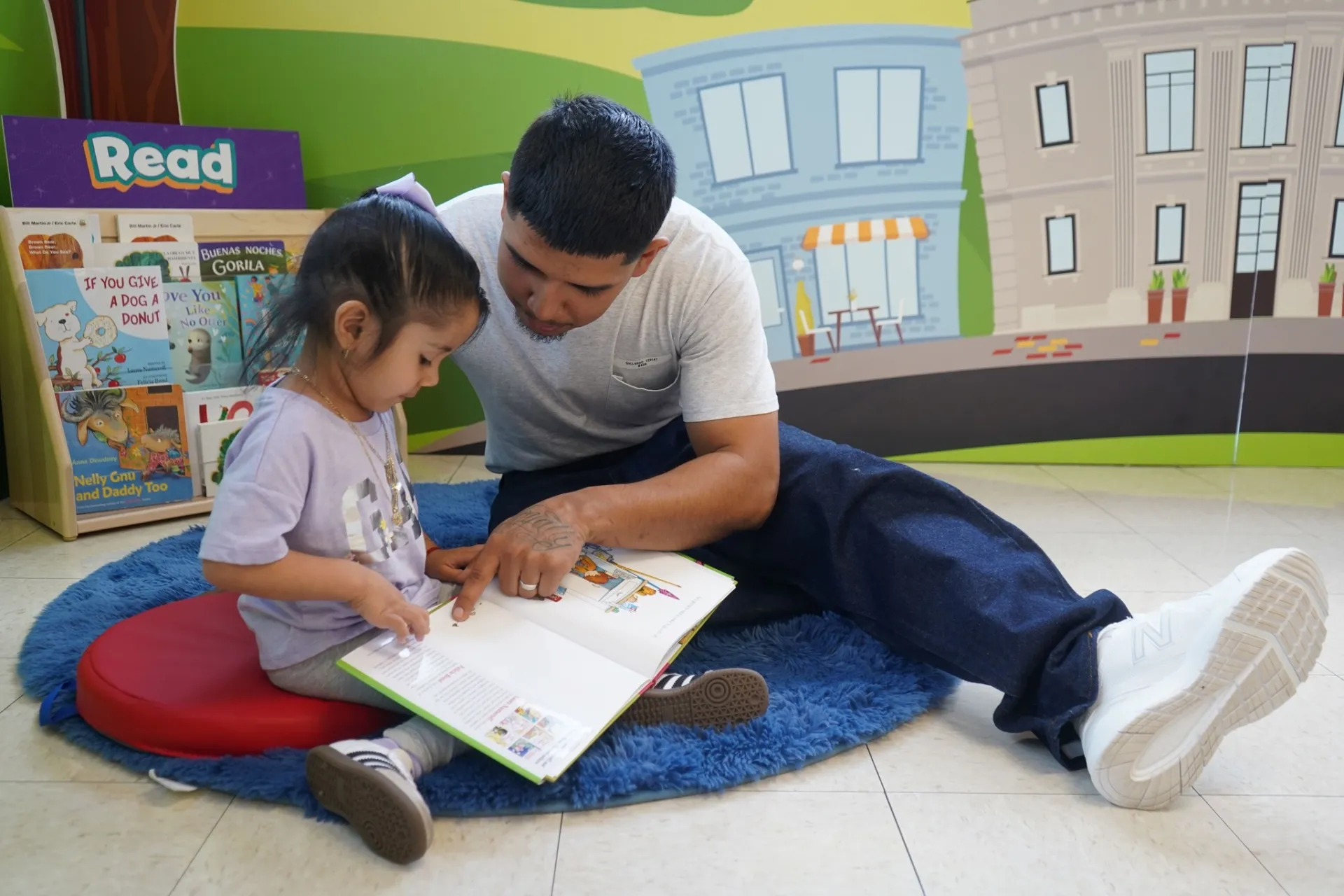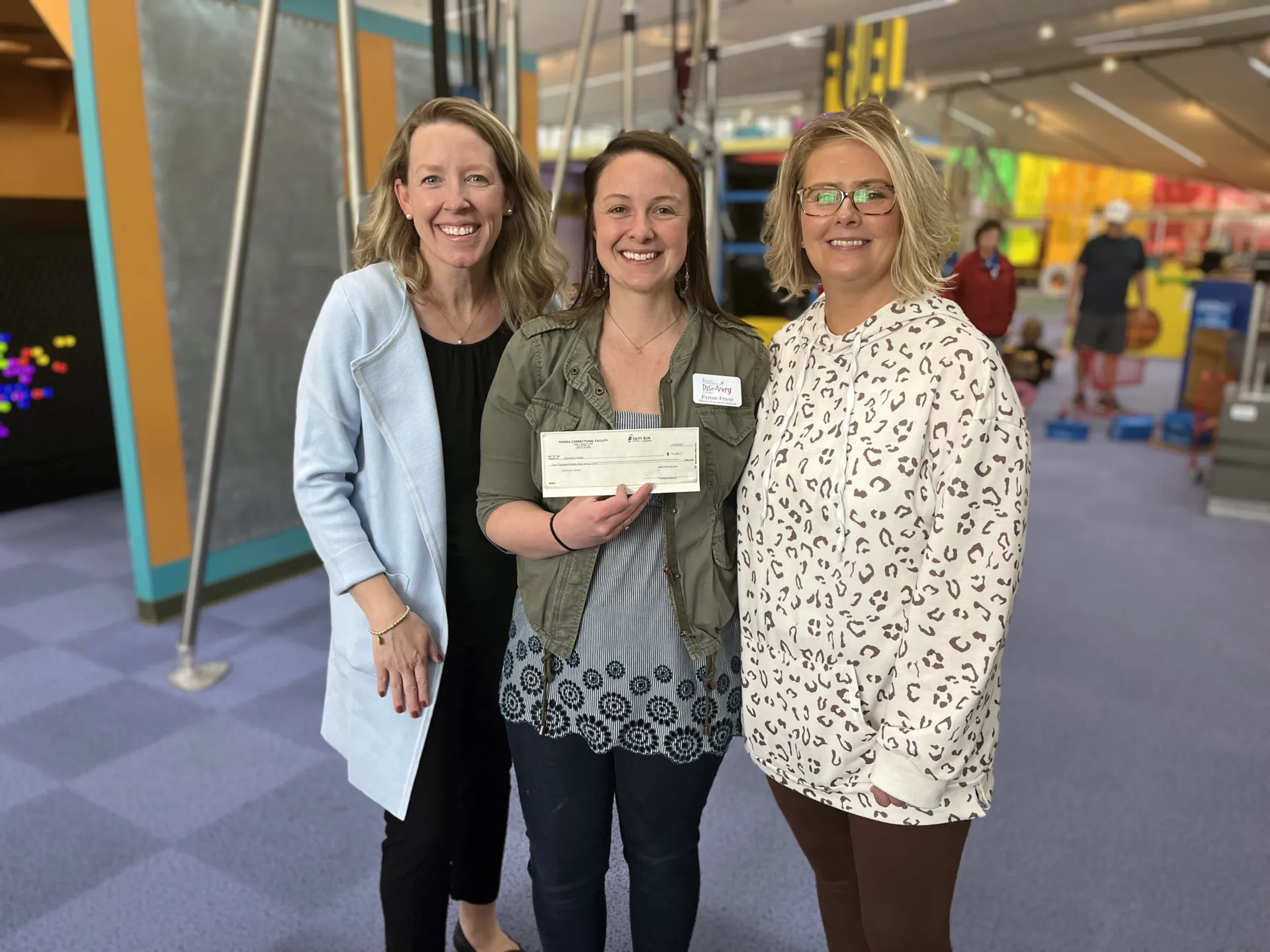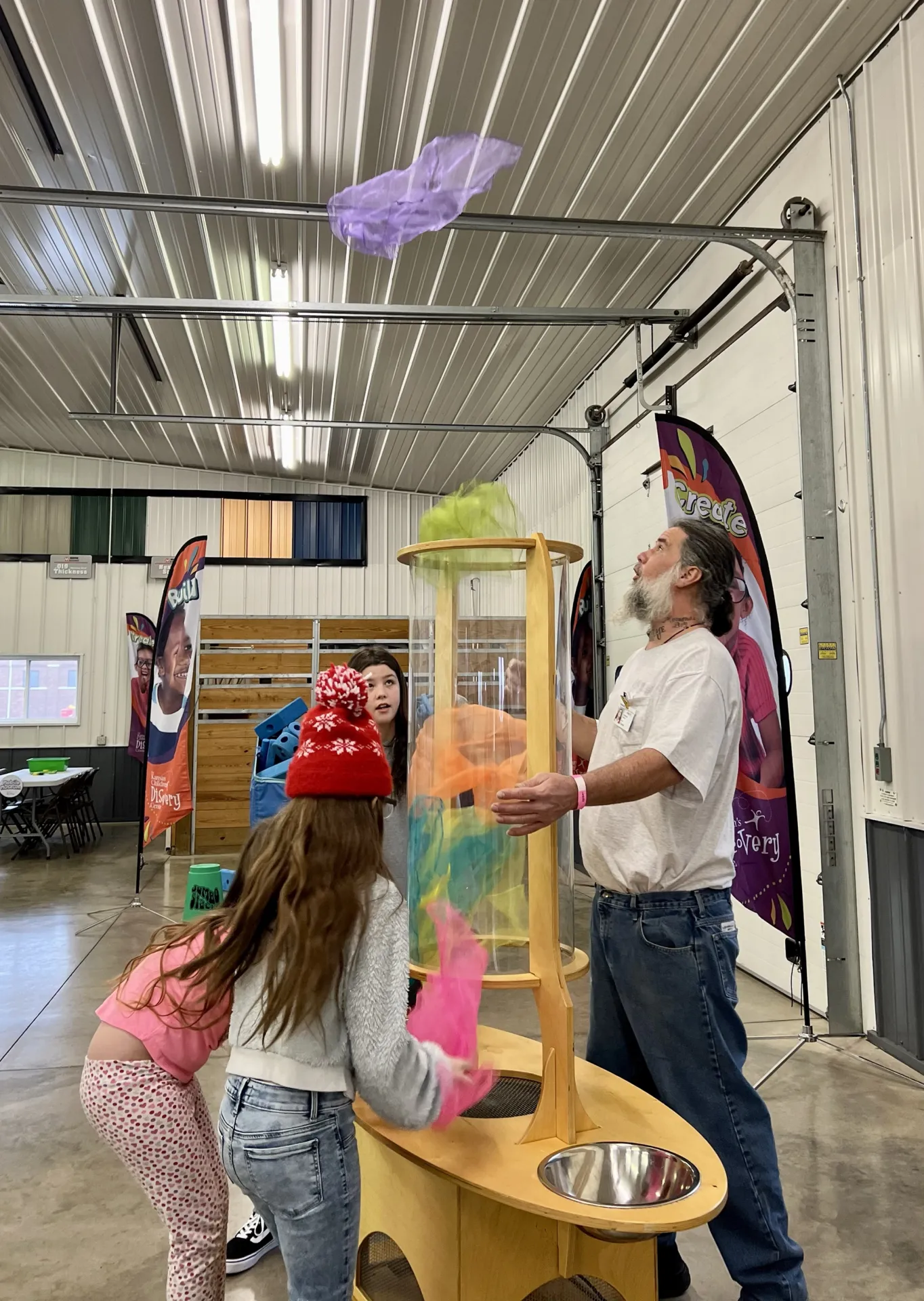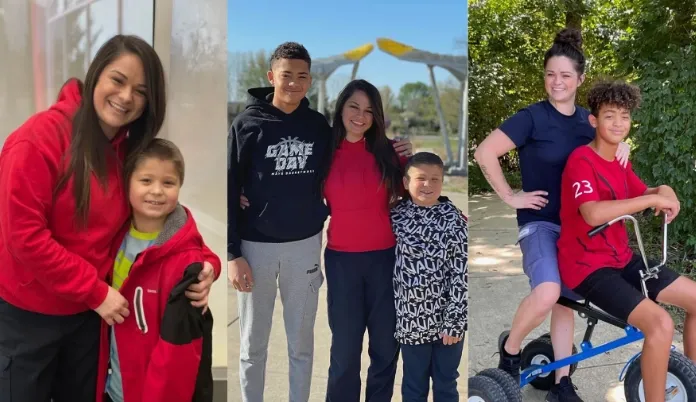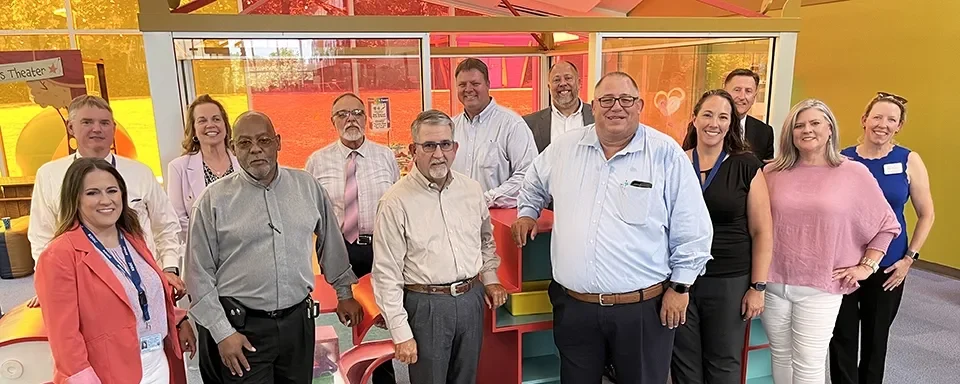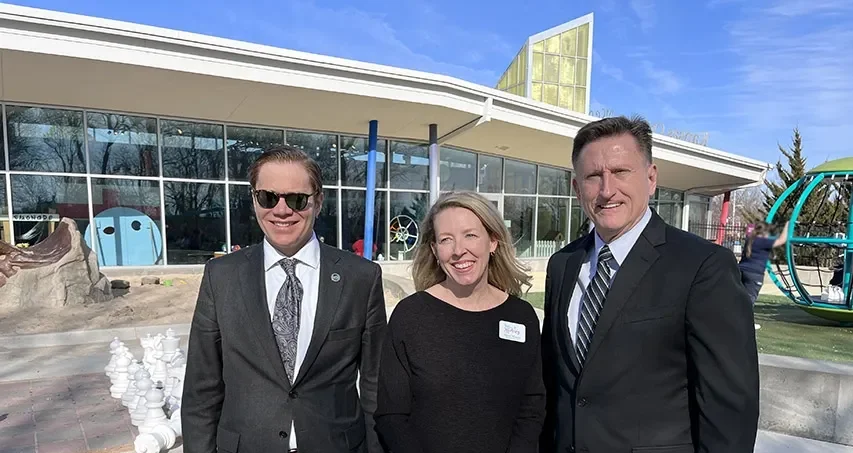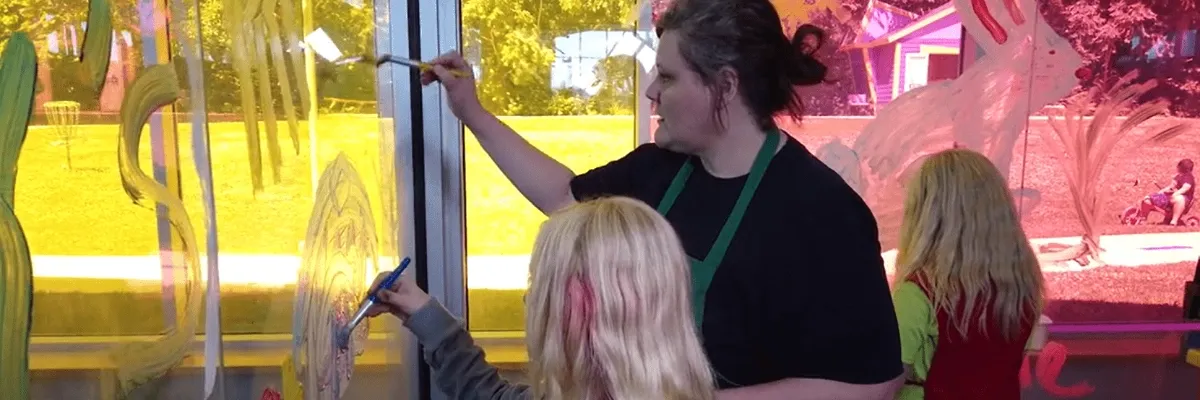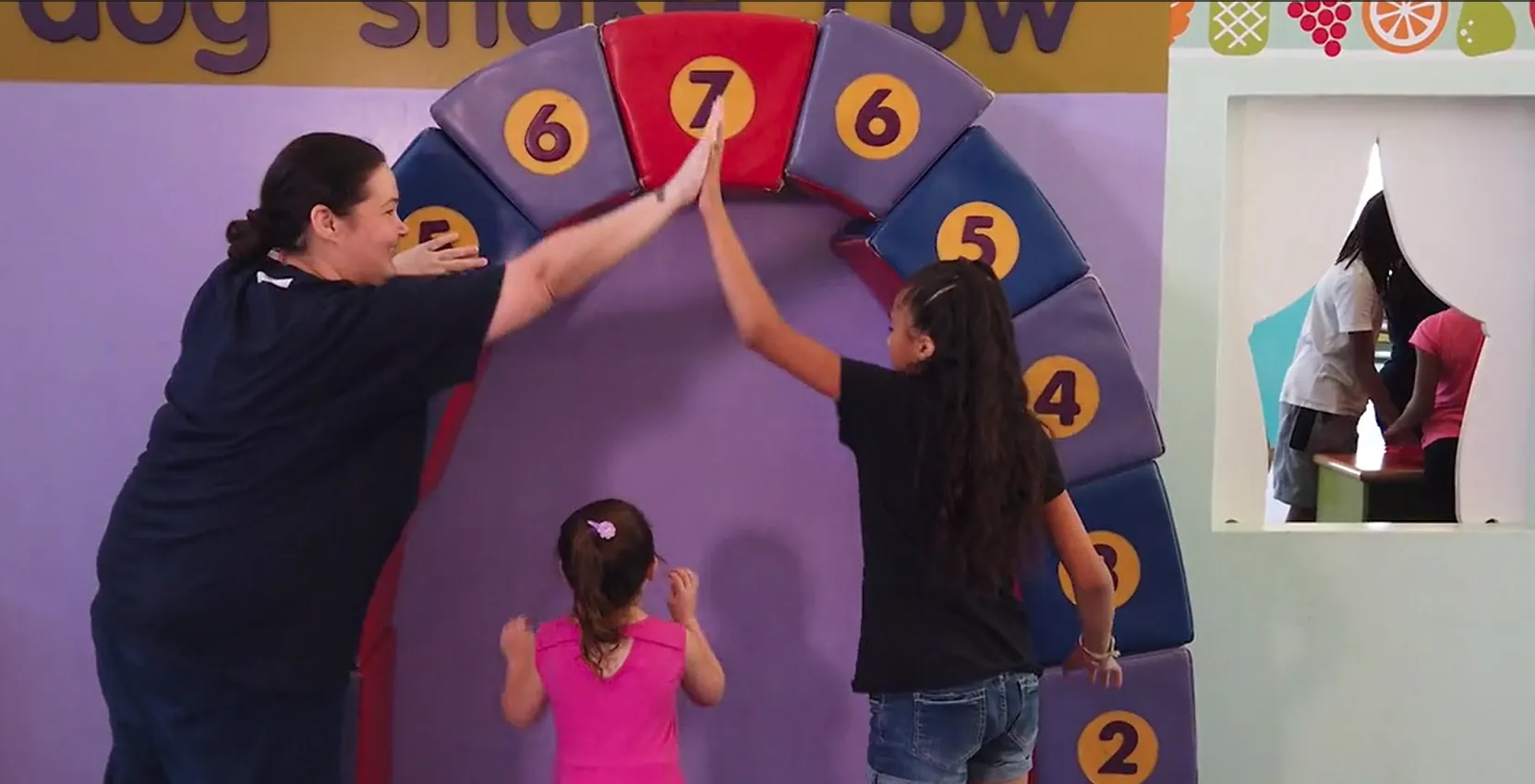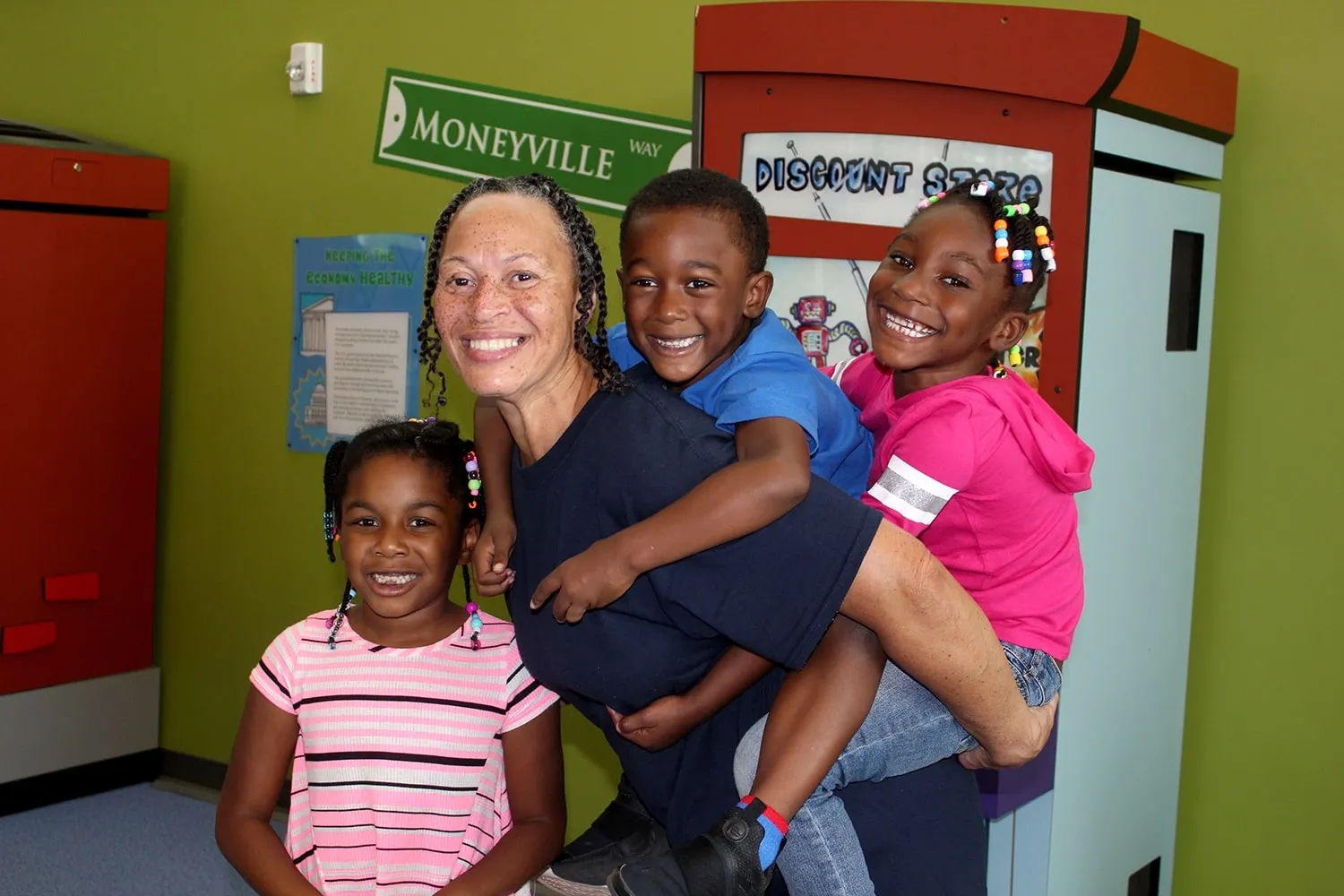
Play-based education and exploration for children with incarcerated parents.
What is Play Free?
Play Free from the Kansas Children’s Discovery Center is a play-based education program for children and their incarcerated parents (in some cases, grandparents). The program creates child-centered bonding time for families outside the prison walls, both at the museum itself and in community settings with the Discovery Center’s Mobile Museum. Play Free started in 2018 in partnership with Topeka Correctional Facility. The program invited mothers to visit the museum with their children for a full day of playful learning. In 2024, the program expanded to serve fathers and juvenile parents across the state of Kansas.
The program is intentionally designed to promote learning through play and healthy attachment to parents. Key characteristics include:
- Play Free is just for parents and their children. Custodial caregivers leave for the sessions, giving parents a unique opportunity to parent.
- Play Free sessions are longer than typical visits, sometimes up to six hours. The amount of time and developmentally-appropriate setting allows a wide range of activities and interactions.
- Play Free is held outside of prisons and does not have uniformed, armed correctional officers on site.
- Play Free is directed by the participants themselves.
Why do kids need Play Free?
More than five million U.S. children have had at least one parent in prison. Through no fault of their own, these children have experienced the pain and confusion of separation from a parent. Research has linked having an incarcerated parent to a wide range of childhood health problems including asthma, depression, anxiety, acting-out behavior, grade retention, alcohol and drug abuse, and higher numbers of Adverse Childhood Experiences (ACEs). Prison-based programs frequently focus on building parenting skills, with comparatively few programs serving the children themselves and fewer still actively promoting bonds between children and their incarcerated parents (Murphey and Cooper, 2015).
Children learn critical skills through play, particularly numeracy, language, resilience, and communication (Parker, 2022). Play-based learning is particularly important for children who have experienced trauma and loss, as it allows them to create a world in which they control what happens. The educational value of play for adult participants is also important. Willingness to engage in playful activities as an adult has been linked to psychological well-being, relationship satisfaction, and creativity (Yue, 2016) Critically for incarcerated populations, adult playfulness is a highly effective tool for stress reduction and problem-solving that creates more resilient adults (Jovanović, 2020). Parent playfulness also encourages the same behavior in children, with positive results including child adaptability. (Shen, 2017)
Simply put: Play Free strengthens families by promoting healthy relationships between children and their incarcerated parents.
How did Play Free develop?
Play Free was inspired by a similar program at the Children’s Museum of Manhattan in partnership with Riker’s Island in New York. The Discovery Center contacted Topeka Correctional Facility, the only women’s prison in the state of Kansas, in early 2018 to create opportunities for women to bond with their children at the museum. Play Free in Kansas works with the Women’s Activity Learning Center (WALC) program at Topeka Correctional Facility, the Kansas Department of Corrections, and each prison served by the program to provide this opportunity to families. The program is funded by generous private donors and the Kansas Department of Corrections. As advocates for children across the country, it is our hope that more children’s museums develop programs like Play Free.
Play Free makes a difference for families.
“My daughter said: ‘this is the best day ever!’ It was wonderful to experience such a memory.”
“If I stay out of trouble, I can look forward to this again.”
“My favorite part of the day was bring able to walk on the trail and just have one-on-one time to talk.”
“It meant everything to me. I felt like a real person again and my son and I could just have time. I don’t have the proper words to express how wonderful it was.”
“This 6 year old child needs to see his mother. Have fun together. Try for both of them to make the best of a bad situation.”
Partner With Us
The Kansas Children’s Discovery Center’s Play Free program connects children with incarcerated parents and grandparents through joyful, healing play. Since launching in 2018, Play Free has provided meaningful parent–child play experiences for over 2,500 individuals impacted by incarceration across Kansas.
These play-based experiences have unfolded in a variety of settings, from visits inside our children’s museum, to community-based programs utilizing our Mobile Museum, to correctional facilities with visitation rooms designed on a children’s museum model. By building opportunities for children to play, discover, and connect with their parents and grandparents, Play Free has become one of the largest and most robust models of its kind in the country, demonstrating what is possible when states invest in their youngest citizens.
Inspired by the pioneering work of the Children’s Museum of Manhattan and their partnership with Rikers Island, Play Free has been adapted to meet the unique rural context of Kansas. With the support of the Kansas Department of Corrections, we have:
- Installed three child-friendly visitation spaces inside correctional facilities
- Expanded to serve juvenile and men’s facilities across the state
- Extended into community-based environments using the Mobile Museum, creating access even in areas without local partners
The Kansas Children’s Discovery Center offers consultation and partnership opportunities for governments, corrections systems, nonprofits, and community organizations seeking to create similar programs.
Consulting and Training
Practical guidance on adapting Play Free to your community, including staff training, program design, and implementation.
Speaking Engagements
Keynotes, panels, and presentations that share Play Free’s story, impact data (2,500+ family play experiences and counting), and lessons learned.
Visitation Space Design and Support
Expertise in creating developmentally appropriate, child-centered visitation environments inside correctional facilities.
Convenings and Collaboration
We believe meaningful change happens together. The Discovery Center welcomes collaboration with peer museums, state agencies, nonprofits, and community partners who share our vision of ensuring all children experience the power of connection and joy. By learning from one another, sharing best practices, and centering children’s needs, we can amplify impact and build stronger families across communities.
Request a Partnership
If you are interested in consulting, training, speaking, or requesting permission to use Play Free data or stories, please complete our request form.
Permissions & Intellectual Property
The Play Free program, including its curriculum, materials, and data, is the proprietary work of the Kansas Children’s Discovery Center. Stories, language, or data may not be reproduced, used, or adapted without prior written permission.
We welcome collaboration and are committed to supporting partners who wish to responsibly reference or adapt Play Free in their own communities. If you are interested in consulting, training, speaking, or requesting permission to use Play Free data or stories, please complete our request form.
